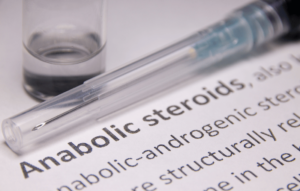In the pursuit of peak physical performance and a Greek god-like physique, a lot of guys turn to anabolic steroids, tempted by the promises of rapid muscle growth and enhanced strength. These substances, known for their powerful anabolic (muscle-building) and androgenic (male characteristic-enhancing) effects, have become increasingly popular among athletes, bodybuilders, and even just fitness enthusiasts seeking a competitive edge. While steroids may seem like a shortcut to achieving physical goals, the reality is far more complex and filled with potential dangers.
Behind the allure of increased muscle mass and faster recovery lies a hidden cost that many users overlook: the significant risks to their overall health, particularly their fertility. Often marketed as quick fixes for building a better body, anabolic steroids can lead to a cascade of side effects that range from mild and temporary to severe and permanent. Among these, the impact on male fertility is one of the most underreported yet serious concerns, with many users unaware of the potential long-term consequences.
This blog will take a dive into the lesser-known risks of anabolic steroid use, particularly how they can jeopardize a man’s ability to father children. We’ll also explore the importance of early education and medical support for those affected. Before considering steroids as part of your fitness journey, it’s crucial to understand the hidden costs that could affect you as well as your lineage.
Understanding Anabolic Steroids
What Are They?
Anabolic-androgenic steroids (AAS) are essentially synthetic chemicals made to mimic the effects of testosterone – the primary male sex hormone responsible for muscle growth, bone density, and the development of male characteristics. These substances are primarily taken to either replicate or increase testosterone’s anabolic effects of muscle growth and boosted recovery. They also carry androgenic properties, which enhance male traits like facial hair and a deeper voice.
Steroids are often used by athletes and bodybuilders to gain a competitive edge or by those looking to achieve their ideal body image more quickly. While anabolic steroids can certainly increase muscle mass and improve physical performance, they are far from a magic bullet. The reality is that their use comes with a significant trade-off between short-term gains and long-term health risks.
Why Do People Use Steroids?
 The appeal of anabolic steroids is pretty understandable. For many, the promise of faster muscle growth, increased strength, and reduced recovery times seems too good to pass up. The desire for a leaner, more muscular physique is a powerful motivator, especially when combined with the pressure to keep up with what you see in modern media. Additionally, the confidence boost from seeing rapid changes in the mirror or outperforming your boys in the gym can make steroids seem like a quick and easy solution to fitness goals.
The appeal of anabolic steroids is pretty understandable. For many, the promise of faster muscle growth, increased strength, and reduced recovery times seems too good to pass up. The desire for a leaner, more muscular physique is a powerful motivator, especially when combined with the pressure to keep up with what you see in modern media. Additionally, the confidence boost from seeing rapid changes in the mirror or outperforming your boys in the gym can make steroids seem like a quick and easy solution to fitness goals.
However, this focus on just the upsides overlooks the potential dangers these things come with. Many, maybe even most, users are either unaware or dismissive of the hidden costs associated with anabolic steroids, including the impact on long-term health and, more specifically, male fertility. Understanding these risks is absolutely essential for anyone considering steroid use, as the consequences can extend far beyond the gym or sport.
The Dark Side of Steroid Use
The Range of Side Effects
While the allure of anabolic steroids lies in their ability to quickly build muscle and enhance physical performance, the potential side effects present a stark contrast to these perceived benefits. Steroid use can lead to a wide range of adverse effects, some of which are mild and reversible, while others can be severe, permanent, or even fatal.
Among the milder side effects are acne, mood swings, and increased aggression – often referred to as “roid rage.” These may seem like minor inconveniences compared to the muscle gains they come with, but the darker side of steroid use includes way worse health risks. Steroid use can bring cardiovascular problems, liver damage, and even kidney disease. They can elevate blood pressure, increase the risk of blood clots, and lead to heart attacks or strokes, even in young, otherwise healthy guys. The liver, which is responsible for processing these synthetic substances, can suffer from toxicity, leading to conditions like liver tumors or peliosis hepatis, a rare but life-threatening condition involving blood-filled cysts in the liver.
even kidney disease. They can elevate blood pressure, increase the risk of blood clots, and lead to heart attacks or strokes, even in young, otherwise healthy guys. The liver, which is responsible for processing these synthetic substances, can suffer from toxicity, leading to conditions like liver tumors or peliosis hepatis, a rare but life-threatening condition involving blood-filled cysts in the liver.
More alarming is the potential for irreversible changes. Prolonged steroid use can result in gynecomastia (enlarged breast tissue in men), hair loss, testicular atrophy, and decreased sperm production. These effects are not just physical; they can also profoundly impact mental health, contributing to anxiety, depression, and a distorted body image.
The Silent Impact on Male Fertility
One of the most overlooked consequences of anabolic steroid use is its detrimental effect on male fertility. While many users are aware of the more visible side effects, the impact on fertility is often a hidden and unexpected cost. Steroid use can disrupt the body’s natural hormone production, leading to a condition known as anabolic steroid-induced hypogonadism. This condition results in significantly reduced testosterone levels, impaired sperm production, and, ultimately, infertility.
What makes this issue even more concerning is that so few guys affected are adequately informed about the long-term effects of steroids on their ability to father children. In fact, regret over steroid use often stems from a lack of awareness about these hidden fertility costs. For some, the damage may be reversible with cessation and medical intervention, but for others, the impact on fertility can be long-lasting or permanent.
Studies have highlighted that men who use anabolic steroids are at a high risk of developing fertility problems, yet this critical issue remains underreported and poorly understood. As a result, so many only realize the severity of their decision when it is too late and they’re facing potentially irreversible infertility. Raising awareness about these risks is essential for ensuring that people are making informed decisions about their health and their futures.
Clinical Approach to Steroid-Induced Infertility
For men who have used anabolic steroids, especially those experiencing fertility issues, a thorough medical evaluation is essential. Steroid-induced hypogonadism, where the body’s natural testosterone production is significantly reduced or halted, can have serious consequences for male reproductive health.

The infertility evaluation for a man who has used anabolic steroids should include several key components:
- Physical Examination: A detailed physical examination is the first step, focusing on signs of hypogonadism, such as testicular atrophy, reduced facial and body hair, and gynecomastia.
- Semen Analysis: Assessing sperm count, motility, and morphology is crucial in determining the extent of fertility impairment.
- Hormonal Profile: Testing hormone levels, including testosterone, luteinizing hormone (LH), and follicle-stimulating hormone (FSH), can help identify disruptions in the body’s endocrine system caused by steroid use.
- Genetic Testing: In some cases, genetic testing may be necessary to rule out underlying genetic causes of infertility that could be exacerbated by steroid use.
Early detection and intervention are critical. The cessation of anabolic steroid use should be strongly encouraged, as the body may recover its natural hormone production over time. However, this process can vary greatly between individuals, and some men may require additional medical interventions, such as hormone replacement therapy, to restore normal function.
The Role of Medical Professionals
Healthcare providers play a key role in supporting guys who have used or are considering using anabolic steroids. The first step is education: ensuring that patients understand the full scope of risks associated with steroid use, including its impact on fertility. Clinicians should approach this topic with sensitivity, recognizing that many men may feel regret or anxiety about their past decisions and may not fully understand the consequences they face.
For those who have already experienced fertility problems due to steroid use, clinicians should offer a supportive environment that emphasizes recovery and management. This could include counseling services to address the psychological effects of steroid use, such as body image issues, depression, or anxiety. Medical support should focus on monitoring hormone levels, managing symptoms, and providing appropriate fertility treatments when necessary.
By providing comprehensive care and fostering open dialogue, healthcare professionals can help mitigate the long-term effects of steroid use on fertility and overall health. This approach is not just about treating the symptoms but also about supporting guys in making informed choices about their health and well-being moving forward.
Moving Forward
Education and Awareness
Combating the misuse of anabolic steroids requires more than just medical intervention; it also involves a fundamental shift in cultural awareness and education. Many men who use steroids are simply unaware of the long-term consequences, particularly the impact on fertility. Effective education needs to address these gaps by providing clear, evidence-based information about the risks involved.
Education should start early, targeting young men, athletes, and fitness enthusiasts who might consider using steroids to enhance their performance or appearance particularly as these compounds continue to trend on social media platforms. Schools, sports organizations, and fitness communities should also provide comprehensive education on the hidden costs of steroid use, not just focusing on the physical side effects but also on the emotional, psychological, and reproductive health impacts. By creating an environment where the dangers of steroid use are more openly discussed and better understood, we can help reduce the appeal of these substances.
Additionally, education needs to go beyond just the potential harm; it should also promote healthy, natural alternatives for achieving fitness goals. Encouraging a balanced diet, proper exercise, and a sustainable fitness plan can help diminish the perceived need for shortcuts like anabolic steroids. When people understand that there are safe and effective ways to build muscle and enhance performance, they are more likely to avoid the temptations of steroid use.
Support for Persistent Users
While education is essential, it is not always sufficient to deter steroid use, particularly for those who are competing in bodybuilding or otherwise already committed to or addicted to these compounds. For these folks, a supportive approach is essential. Instead of stigmatizing or shaming those who use steroids, healthcare providers, friends, and family members should focus on providing understanding and assistance.
Medical professionals should offer an ethical, patient-centered approach that prioritizes the health and well-being of those who continue to use anabolic steroids. This could involve regular health monitoring, counseling, and access to support groups where individuals can share their experiences and struggles. In some cases, providing information on harm reduction – such as safer use practices and regular medical check-ups – can help mitigate some of the severe health risks.
Ultimately, the goal is to guide individuals toward safer choices. For some, this may mean tapering off steroid use with the help of medical supervision, while for others, it may involve comprehensive treatment plans to address both the physical and psychological aspects of dependency. Support networks, both professional and personal, are incredibly needed in helping men navigate the path away from irresponsible steroid use and toward a healthier lifestyle.
Closing Thoughts
So fellas, while anabolic steroids can obviously offer some quick gains in muscle and strength, the hidden costs – especially on your fertility – are significant and potentially irreversible.
The decision to use steroids should never be taken lightly, given the serious health risks involved. Educating yourself about these dangers, seeking healthier alternatives, and providing support to those struggling with steroid use can make a meaningful difference.
meaningful difference.
In the end, your best choice is probably to prioritize long-term health over short-term gains – you’d be surprised how far you can get as a natural athlete if you’re diligent about your training and nutrition.
Stay natty guys.









